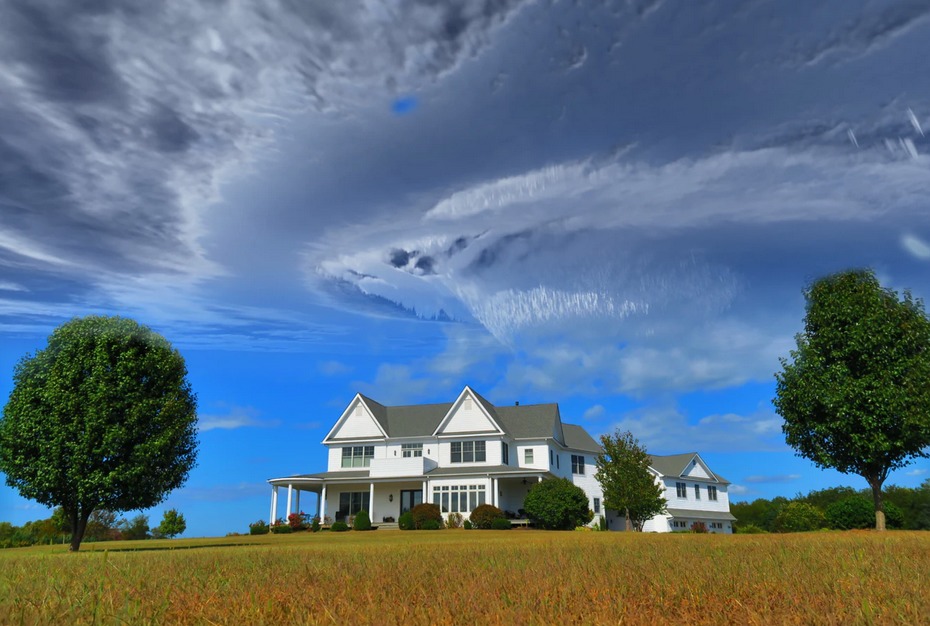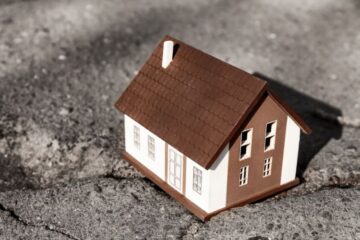Natural Disaster Insurance: What Does It Cover

Having disaster insurance is an important part of being prepared. Without it, you alone are responsible for the costs of replacing your property and repairing your home.
What Does Homeowner’s Insurance Cover?
Most homeowners, particularly those with mortgages, have homeowner’s insurance, which covers damage from some disasters, but not all. Most policies cover damage caused by:
- Fire or lightning
- Explosions
- Riots or civil commotion
- Aircraft
- Vehicles
- Smoke
- Vandalism or malicious mischief
- Theft
- Volcanic eruption
- Windstorm or hail
- Falling objects
- Weight of ice, sleet, or snow
- Freezing of plumbing, heating, air conditioning, or any other type of household system
In addition, most homeowner’s policies cover both:
- Property: The structure of your home and some of its contents
- Personal liability: Lawsuits that may arise if someone is injured in your home
Some homeowner’s policies also include a loss of use provision, which covers additional living expenses if you’re forced to evacuate during a disaster.
What Does Homeowner’s Insurance Not Cover?
A homeowner’s policy does not cover damage from:
- Floods
- Earthquakes
- Lack of maintenance
In some hurricane-prone areas, windstorm coverage is also excluded from homeowner’s policies. Don’t wait until after a disaster to find whether or not it’s covered. Determine ahead of time the gaps that exist in your current policy and, if necessary, purchase additional riders.
Types of Disaster Insurance
Consult the following table to identify the types of disaster insurance you may need.
|
Type of Insurance
|
What It Covers
|
Who Needs It
|
How to Get More Information
|
|||
|
Flood
|
Up to $250,000 for your home and $100,000 for its contents for damage cause by floodwaters. If you live in a particularly hazardous area, you can purchase excess flood insurance from a specialized insurance company.
|
Those who live:
|
Flood insurance is provided by FEMA’s National Flood Insurance Program (NFIP). Call NIFP at 888.379.9531 or visit www.floodsmart.gov to determine your flood risk, estimate your premium, and find an agent serving your area.
|
|||
|
Earthquake
|
Coverage varies by state and is limited to the insured value of your home, as stated on your homeowner’s policy, plus up to $100,000 of personal property coverage (furniture, clothing, bedding, electronics), and up to $15,000 of additional living expenses coverage.
|
Anyone who lives in a high-risk state. Your specific earthquake risk is determined by your location relative to faults, the soil around your home, and the age and type of home in which you live.
|
Talk to your insurance agent to determine your earthquake risk, or, if you live in California, go to the California Earthquake Authority website: www.earthquakeauthority.com. Also, investigate the mini-policy, a less expensive, reduced coverage option.
|
|||
|
Windstorm
|
Covers damage that results from high winds. Ask whether mold and mildew are covered in the policy.
|
Those who live in a hurricane-prone area, such as the Atlantic seaboard or Gulf coast.
|
Ask your insurance agent whether your current homeowner’s policy covers windstorms. If it doesn’t, he or she can provide you with information or direct you to a provider.
|
|||
|
Sewer and septic
|
Damage to carpets, walls, and other items caused by flooding from septic system backup or overflow.
|
Anyone, particularly those who live in an old house.
|
Ask your insurance agent for help determining your risk. Typically, the extra rider is about $20–40 more per year.
|
How to Buy Disaster Insurance
To purchase disaster insurance, you must first: determine your disaster risk, evaluate the potential cost of a disaster, and compare the cost of a disaster to the cost of insurance. In particular, you’ll need to consider the following questions:
- How much would it cost to replace your possessions in the event of a disaster?
- How much would it cost to rebuild your home? Estimate this cost by multiplying the total square footage of your home by the local building cost per square foot (call your local real estate agent or builders association to find out this information).
- If you have a mortgage or second mortgage on your home, can you afford to keep paying it while you’re rebuilding your home?
How to Find an Insurance Agent
First, contact an insurance agent to talk about your risks and needs. You can find companies in the telephone book, online, or through recommendations from friends and family. There are many options for insurance providers, so here are some tips to narrow your search:
- Buy from a company licensed in your state: To find out whether a company is licensed, contact your state’s insurance department. Look it up in the telephone book or go to the National Association of Insurance Commissioners website: www.naic.org/state_web_map.htm.
- Shop around: Prices vary, so get at least three price quotes before you commit.
- Select a financially sound company: To do so, consult independent rating agencies, such as A. M. Best, Fitch, Moody’s, and Standard & Poor’s.
- Feel comfortable with your agent: Insurance is all about security, so make sure you trust your company and your agent. You want to be able to call them up with a question or get their help to file a claim.
After you purchase disaster insurance, follow these steps:
- Take inventory of your home: List your possessions and describe the make, model, and cost of each. Save your receipts, especially for big purchases. Your list can take many forms: digital video, film, audiotape, or writing. You can also use computer software to help create and organize your list. Make your inventory as complete as possible—it’s what you’ll give your insurance representative in the event of a disaster.
- Understand what‘s covered in your policy.
- Understand the process of filing a claim: Your insurance agent can guide you through this process.


